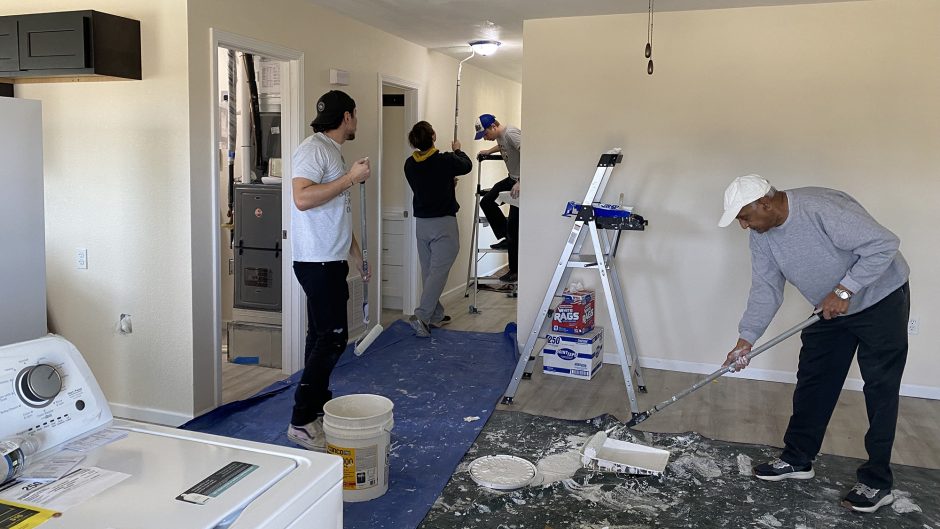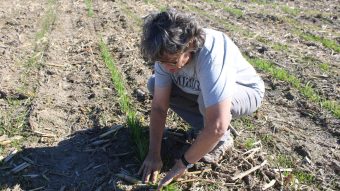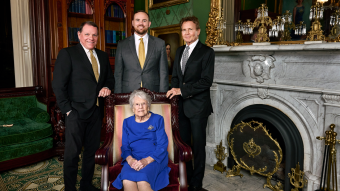
Feb. 6, 2024
A group of University of Missouri College of Engineering students are seeing coursework come to life, releasing stress and anxiety, and transforming their lives through the STEM Scholars program. The program, funded by the National Science Foundation, is a holistic scholarship that includes academic support, one-on-one mentoring and volunteer opportunities. STEM Scholars’ activities have included packaging food at The Food Bank and picking up trash along the Missouri River. Recently, they painted the interior of a house for Habitat for Humanity.
Senior Michael Mann said the projects have been life changing.
“Being involved in the community has given me a greater insight into the individuals around me,” he said. “I no longer look at classes as arbitrary but instead see them as intermediate steps to bettering the lives of those around me through engineering. Doing these service events will allow me to feel a greater connection to those I am helping.”
Professor Vellore Gopalaratnam intentionally made community service a key component when he developed STEM Scholars programming. He knows that volunteering alongside others builds a sense of belonging, and that’s especially important for college students. Studies have shown that students who feel connected to the community are more likely to return to school and graduate than those who do not.
Gopalaratnam also knows first-hand the self-improvement that comes from giving back. He has spent decades helping others throughout Columbia, including at public schools and community centers. Now, Gopalaratnam and Mann are taking steps to spread these messages beyond the STEM Scholars program.
Gopalaratnam recently moderated a roundtable discussion with engineering students, including recipients of the Multicultural Engineering Program scholarship, about the benefits of giving back. He stressed that civic service can range from manually helping out at soup kitchens or community gardens to collecting supplies for refugees or playing with shelter animals.
As part of the STEM Scholars, Mann has helped coordinate service events. In that role, he said he’s learned the importance of clear communication, organization and project management.
Mann stressed that even if volunteering requires work, it’s still a fun way to change the world.
“I think a lot of people underestimate their ability to help, as if small contributions don’t make a difference,” he said. “Every little thing helps. While it may seem as though our work only gives a temporary relief to people, it makes a difference. We may not be able to change the world in one big stride, but volunteering and helping the community are the first steps to seeing the change we need.”
Read more from the College of Engineering


